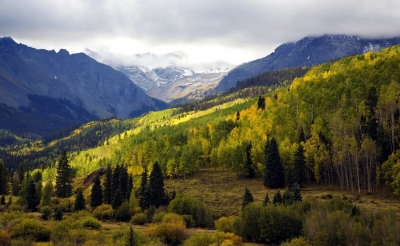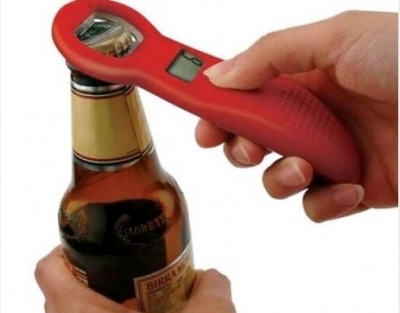 The term ‘resource’ is derived from French and means ‘tools’. Natural resources are the raw materials and the sources of energy present on the Earth. They include the deposits of coal, crude oil, or natural gas. The basic needs of our existence such as air, water, and soil, which gives us food, also belong to resources that we may be able to exploit in future. In economics, resource also means workforce and money.
The term ‘resource’ is derived from French and means ‘tools’. Natural resources are the raw materials and the sources of energy present on the Earth. They include the deposits of coal, crude oil, or natural gas. The basic needs of our existence such as air, water, and soil, which gives us food, also belong to resources that we may be able to exploit in future. In economics, resource also means workforce and money.
Category Forces of nature
Is nature the greatest treasure of the Earth?
 Nature is an immense treasure that provides us with everything we need for our survival – clean air, fresh water, cultivable lands as well as plants and animals, with which we share this planet. Like all the living organisms, we too can use the nature, but we must always be careful. If the sensitive equilibrium of plants, animals, and water is disturbed, it can lead to grave problems, such as the threatening environmental pollution. We need to remember that nature is not indestructible. After a certain amount of destruction, it can no longer ‘heal’ itself.
Nature is an immense treasure that provides us with everything we need for our survival – clean air, fresh water, cultivable lands as well as plants and animals, with which we share this planet. Like all the living organisms, we too can use the nature, but we must always be careful. If the sensitive equilibrium of plants, animals, and water is disturbed, it can lead to grave problems, such as the threatening environmental pollution. We need to remember that nature is not indestructible. After a certain amount of destruction, it can no longer ‘heal’ itself.
Why do people fight for water?
 For us, water coming out of the tap is a fact that we take for granted, but for many people across the world it is an absolute rare commodity. A large part of mankind does not have access to clean drinking water. This is a good reason to fight for water. In many areas of Africa, especially the dry areas of northern Africa, lack of rainfall can lead to a famine which leads to water hoarding. Although scientists predict that in future water will become one of the most hard-fought resources, the fight for water has already started. Many countries across the world are constantly at loggerheads regarding the right to water of a river flowing across the border.
For us, water coming out of the tap is a fact that we take for granted, but for many people across the world it is an absolute rare commodity. A large part of mankind does not have access to clean drinking water. This is a good reason to fight for water. In many areas of Africa, especially the dry areas of northern Africa, lack of rainfall can lead to a famine which leads to water hoarding. Although scientists predict that in future water will become one of the most hard-fought resources, the fight for water has already started. Many countries across the world are constantly at loggerheads regarding the right to water of a river flowing across the border.
Why are quality seals important?

 There are many types of quality seals, for example, the bio-seal for food items which are grown ‘biologically’, which means without the use of chemicals. The Fair-Trade seal is often found on coffee or cocoa. Fair-Trade implies that people involved in the production of these products have also received an appropriate share of the profit. The FSC-logo marks the wood coming from forests, which are not damaged by cutting the wood. By purchasing the products marked with quality seals, we can support the idea of handling nature with care. We can help protect the environment by buying products with quality seals.
There are many types of quality seals, for example, the bio-seal for food items which are grown ‘biologically’, which means without the use of chemicals. The Fair-Trade seal is often found on coffee or cocoa. Fair-Trade implies that people involved in the production of these products have also received an appropriate share of the profit. The FSC-logo marks the wood coming from forests, which are not damaged by cutting the wood. By purchasing the products marked with quality seals, we can support the idea of handling nature with care. We can help protect the environment by buying products with quality seals.
What is aurora?
 Polar lights, or aurora, are bright bands of light that streak in the sky of the polar regions. The sun emits high-energy ion particles. These electrically charged particles, also known as solar wind, get deflected by the Earth’s magnetic field. As a result they are drawn magnetically down into the ionosphere above the Earth’s surface at the poles. Their collision with the gas particles of the air causes the impressive display of colour in the northern sky. The magnetic field of the Earth protects us from the solar wind, which would otherwise destroy all life on the Earth.
Polar lights, or aurora, are bright bands of light that streak in the sky of the polar regions. The sun emits high-energy ion particles. These electrically charged particles, also known as solar wind, get deflected by the Earth’s magnetic field. As a result they are drawn magnetically down into the ionosphere above the Earth’s surface at the poles. Their collision with the gas particles of the air causes the impressive display of colour in the northern sky. The magnetic field of the Earth protects us from the solar wind, which would otherwise destroy all life on the Earth.
Why does the compass needle always point to the north?
 The Earth has a huge magnetic field and all magnetic objects, such as the compass needle, get oriented to it. One end of the freely rotating compass needle marked in colour aligns itself with the north pole of the Earth. This helped the early explorers to find their ways in oceans. Near the poles they often saw an impressive phenomenon in the sky known as aurora. Moreover, a lot of things would not have existed today without strong magnets called electromagnets that can be switched on and off.
The Earth has a huge magnetic field and all magnetic objects, such as the compass needle, get oriented to it. One end of the freely rotating compass needle marked in colour aligns itself with the north pole of the Earth. This helped the early explorers to find their ways in oceans. Near the poles they often saw an impressive phenomenon in the sky known as aurora. Moreover, a lot of things would not have existed today without strong magnets called electromagnets that can be switched on and off.
How does a bottle opener work?
 A bottle opener is a simple lever. It intensifies the force with which we remove the crown cap of a bottle. Levers are mostly rigid, rod-shaped objects that have a fulcrum at one place. The longer the arm of the lever, the lesser the force required to do the work. The law of physics ‘Work = Force x Distance’ is applicable here too. The bottle opener is a one-sided lever. The longer the arm of the bottle opener, the easier it is to open it. Other examples of levers are pliers, scissors, crowbars, wrenches, paper punchers, and door handles.
A bottle opener is a simple lever. It intensifies the force with which we remove the crown cap of a bottle. Levers are mostly rigid, rod-shaped objects that have a fulcrum at one place. The longer the arm of the lever, the lesser the force required to do the work. The law of physics ‘Work = Force x Distance’ is applicable here too. The bottle opener is a one-sided lever. The longer the arm of the bottle opener, the easier it is to open it. Other examples of levers are pliers, scissors, crowbars, wrenches, paper punchers, and door handles.

